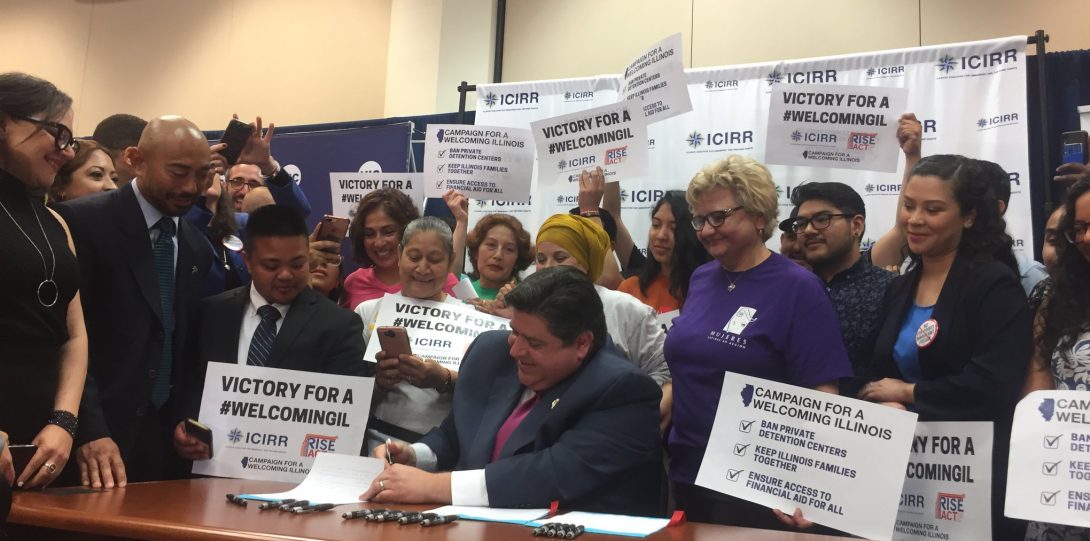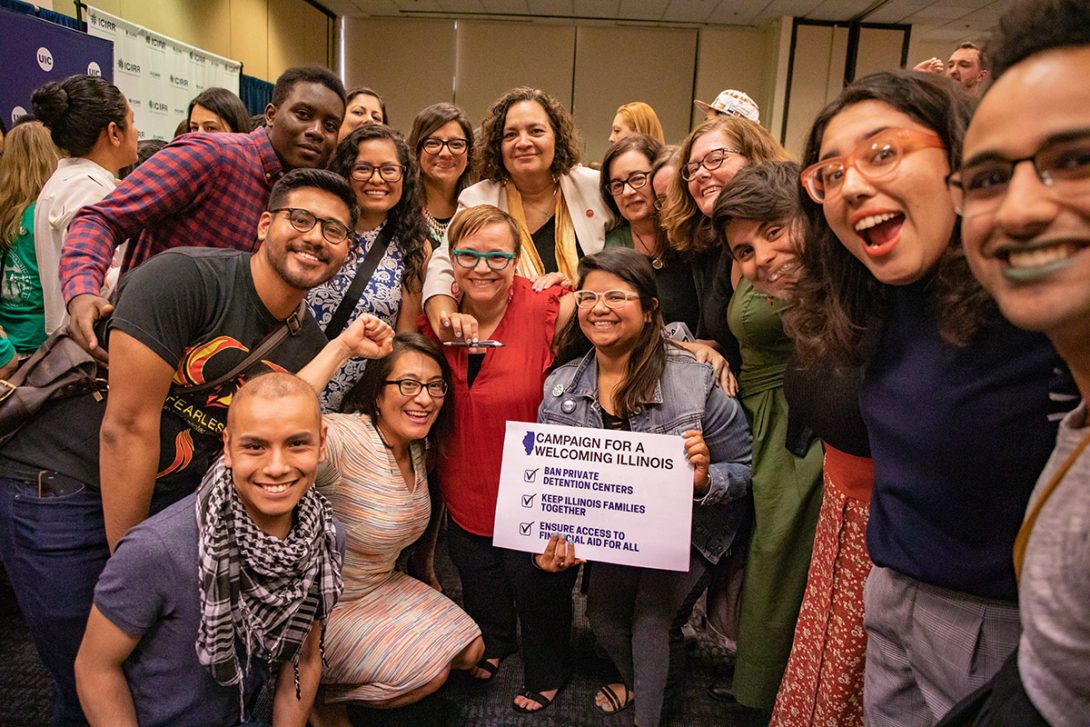Rising Up, Speaking Out
Illinois RISE Act expands equity and increases access to higher education.
Part 1 Heading link

“If we don’t speak up, nobody will listen,” says Perla Santoyo, a senior Marketing major and Deferred Action for Childhood Arrivals (DACA) recipient. Speaking up about her story as a DACA recipient and the difficulties she faced in funding her college education helped to turn the Illinois RISE (Retention of Illinois Students and Equity) Act, which allows state and institutional financial aid eligibility to a subset of students who were previously ineligible, into law.
Last year, Santoyo joined Tanya Cabrera, assistant vice provost for student inclusion, other UIC community members and a coalition of groups in Springfield, Illinois, to give her testimony in front of the Illinois Senate and House of Representatives for the Illinois RISE Act, which created statewide legislation that expands equity and allows more students access to higher education.
Santoyo Quote Heading link
My story is mirrored in many of the others, and I wanted to help other students going through the same thing to have an easier path and get state financial aid.
Part 2 Heading link

Signed into law on June 21, 2019, by Governor Pritzker at UIC’s Chicago campus, the RISE Act gives undocumented and transgender students in Illinois who could not previously access federal financial aid the opportunity to apply for all forms of state financial aid and institutional aid as of January 1, 2020.
Santoyo’s story, like those of other DACA or undocumented students, takes courage to tell. “My story is mirrored in many of the others, and I wanted to help other students going through the same thing to have an easier path and get state financial aid,” relates Santoyo, who is also president of UIC’s Fearless Undocumented Alliance student organization. She goes on, “It’s often taboo to tell your story if you are undocumented; those are things that you don’t talk about. There comes a point when it’s enough. That’s what motivated me, and having the mentorship from Tanya and others helped me along the way.”
When Santoyo transferred to UIC from Morton College in 2018, it was Cabrera who helped her find ways to finance her education since she could not file a Free Application for Federal Student Aid (FAFSA). Completing a FAFSA requires students to list gender “at birth” and Social Security number among other information that DACA recipients, undocumented students and transgender students may not possess or are afraid to report.
“Many undocumented students struggle to complete their degrees because of finances.” explains Cabrera. In addition to the Monetary Award Program (MAP) funding that students are now eligible for through the RISE Act, UIC’s Chancellor Michael D. Amiridis committed to providing additional funding for Illinois residents. “Our chancellor is the only institutional leader in the State of Illinois who provided this additional funding through the UIC Opportunity Grant ($3,700 for the academic year for Illinois residents),” says Cabrera.
With its work on the Illinois RISE Act and commitment to support undocumented students not only with financial aid, but also with career placement resources, UIC has become a university other institutions are looking to for guidance. UIC has shown that it stands in solidarity with the best practices in state legislation as it continues to work toward equity and access in education.
Learn more at dream.uic.edu.